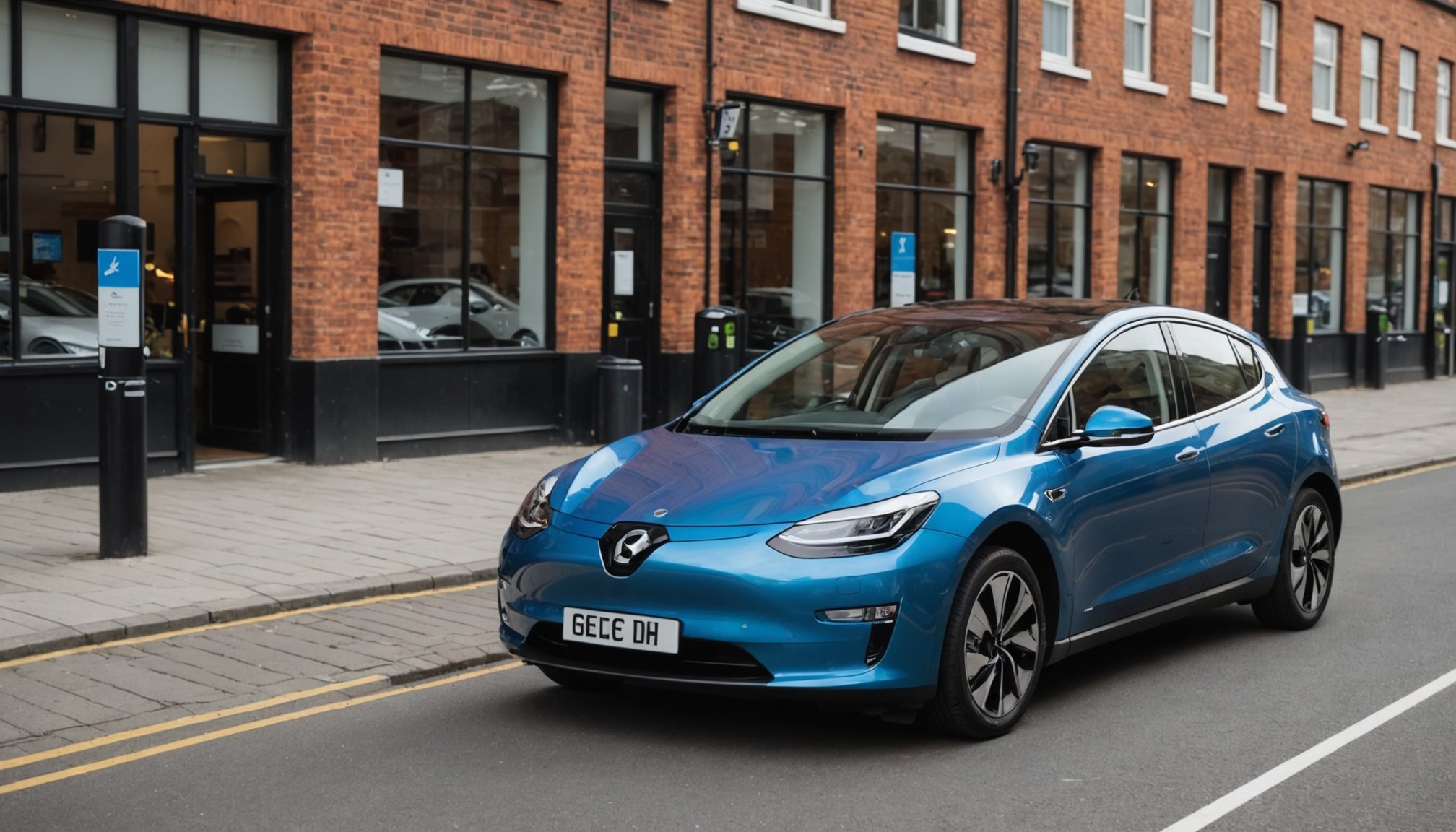Comprehensive Checklist for Used Electric Car Evaluations
When evaluating a used electric car, there are several essential checks to consider, ensuring a wise purchase. First on the checklist is the battery inspection. The battery’s condition is critical; it determines the car’s range and overall lifespan. A professional assessment can reveal the remaining battery lifespan, highlighting any potential replacement costs.
Next, conducting a meticulous vehicle history check is crucial. This involves scrutinising past incidents recorded on the car’s file. Any history of accidents or significant repairs can affect the car’s performance and value. Understanding the vehicle’s past helps in predicting future reliability.
Also read : Unlock top resale value for your car: pro detailing secrets for uk vehicle owners
Evaluating the charging capabilities is another vital step. Determine if the car is compatible with your local charging infrastructure. Assess its charging speed and technology; this affects how convenient daily use will be.
- Essential Checks Include:
- Battery Inspection
- Thorough Vehicle History Check
- Charging Capabilities Evaluation
Lastly, ensure compatibility with local charging stations to avoid inconveniences later. With these checks, you can make an informed decision, ensuring years of reliable use.
In parallel : The ultimate guide to the best electric cars for long-distance commuting across the uk
Legal Considerations When Purchasing Used Electric Cars
When buying a used electric car, understanding the legal aspects is crucial for a seamless transaction. Start by examining the warranties offered. Both dealers and manufacturers may provide warranties, but terms can vary significantly. Knowing what is covered helps you anticipate future maintenance costs.
Next, verify the vehicle’s registration status. Ensure all paperwork is current, including the logbook (V5C). A complete history of ownership is vital for confirming the car’s legal standing. Incomplete or outdated documentation can hinder your ability to register the car legally, creating potential complications.
Furthermore, be well-informed about your consumer rights. In the UK, purchasers of used cars are entitled to specific protections. Familiarise yourself with the Consumer Rights Act, which ensures the car must match its description, be of satisfactory quality, and fit for purpose. Understanding these rights empowers you to make confident decisions and address any disputes effectively.
Key legal steps you should consider:
- Scrutinise warranty terms
- Confirm the car’s registration status
- Know your consumer rights
By taking these steps, you mitigate risks associated with purchasing a used electric car, ensuring your investment is protected legally.
Financial Considerations for Used Electric Car Buyers
When purchasing a used electric car, it’s imperative to evaluate the financial aspects. One key area to investigate is insurance options and costs. Insurance for electric vehicles can vary significantly compared to traditional cars due to factors such as repair costs and availability of parts. Comparing various insurance providers helps in choosing a policy that balances coverage with affordability.
Tax incentives are another financial boon for electric vehicle owners. In the UK, potential buyers should explore available government incentives, such as discounts on electric vehicle grants and tax exemptions. These incentives can significantly reduce the overall cost of ownership by lowering initial purchase expenses.
Proper budget planning is essential, considering not only the purchase price but also long-term costs like charging, which can fluctuate based on electricity tariffs. Additionally, maintenance and repair costs should be factored into the budget, as electric vehicles have differing service needs compared to petrol or diesel cars.
To optimise budget planning and financial efficiency, potential buyers are encouraged to thoroughly research all cost components. This detailed preparation ensures that the purchase remains financially viable throughout the vehicle’s lifespan, preventing unexpected expenses from undermining long-term financial stability.
Insights on Reliable Dealerships and Common Market Issues
In the realm of used electric vehicles, finding reliable dealerships is essential to ensure a smooth buying experience. Begin by seeking dealerships that specialise in electric vehicles. They often possess deeper knowledge and understanding of electric cars, offering better customer service and more insightful guidance during the purchase process.
One common issue in the market is misleading vehicle conditions. Some dealerships may not disclose all pertinent information about a car’s condition. Thus, thorough inspections and a review of the vehicle history are crucial to verify claims. Customer reviews and ratings play a significant role in determining a dealership’s reliability. Positive reviews indicate satisfied customers and can be a trustworthy source when evaluating a dealership.
It’s also advised to be cautious of pricing anomalies. Prices that are significantly lower than the average market rate may indicate hidden issues, whereas excessively high prices might not reflect fair value. Comparing prices across various dealerships helps potential buyers navigate the market effectively.
Key Steps:
- Research dealerships specialising in electric vehicles.
- Emphasise customer reviews to gauge reliability.
- Be aware of pricing inconsistencies to avoid pitfalls.
Average Pricing for Used Electric Vehicles in the UK
Navigating the used electric car market can be complex, especially when determining pricing trends. The average price of a used electric vehicle varies based on several factors, including the model, age, condition, and battery health. For instance, well-maintained models with a robust battery life tend to command higher prices. Conversely, older models or those with depreciated batteries may be more affordable.
When evaluating a used electric vehicle, considering valuation factors is essential. Battery health plays a significant role, as it affects not only the vehicle’s range but also its residual value. Additionally, market demand for specific models can lead to fluctuating prices. Vehicles with advanced features or a reputation for reliability are usually priced higher.
Negotiation tips can be invaluable when discussing prices. Being informed about the market value of similar cars empowers buyers to make reasonable offers. It’s also beneficial to point out any wear and tear or battery issues to justify a lower price. Furthermore, understanding trends from local market reports can offer insights into what constitutes a fair deal in the UK. By being prepared, buyers can secure a satisfactory purchase.











